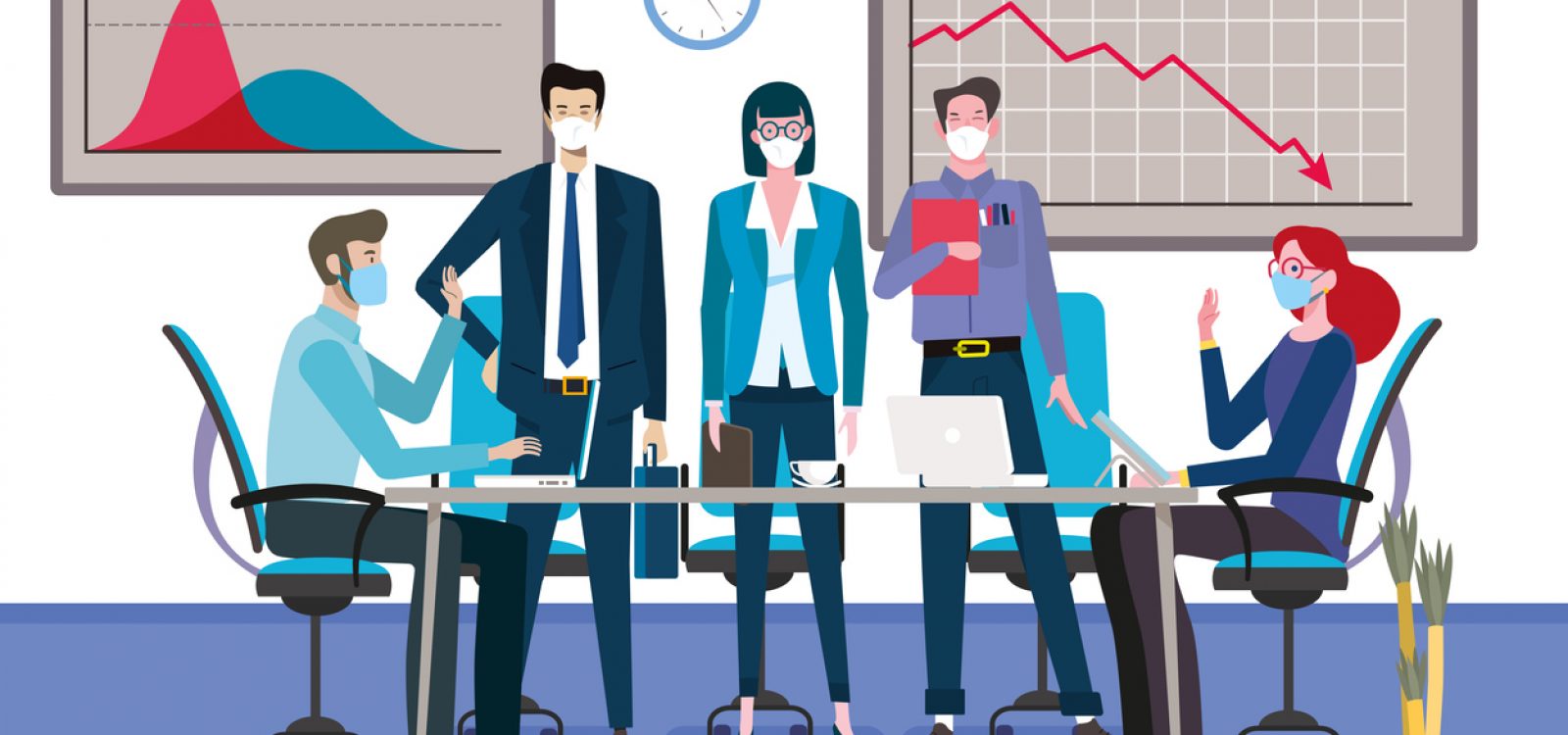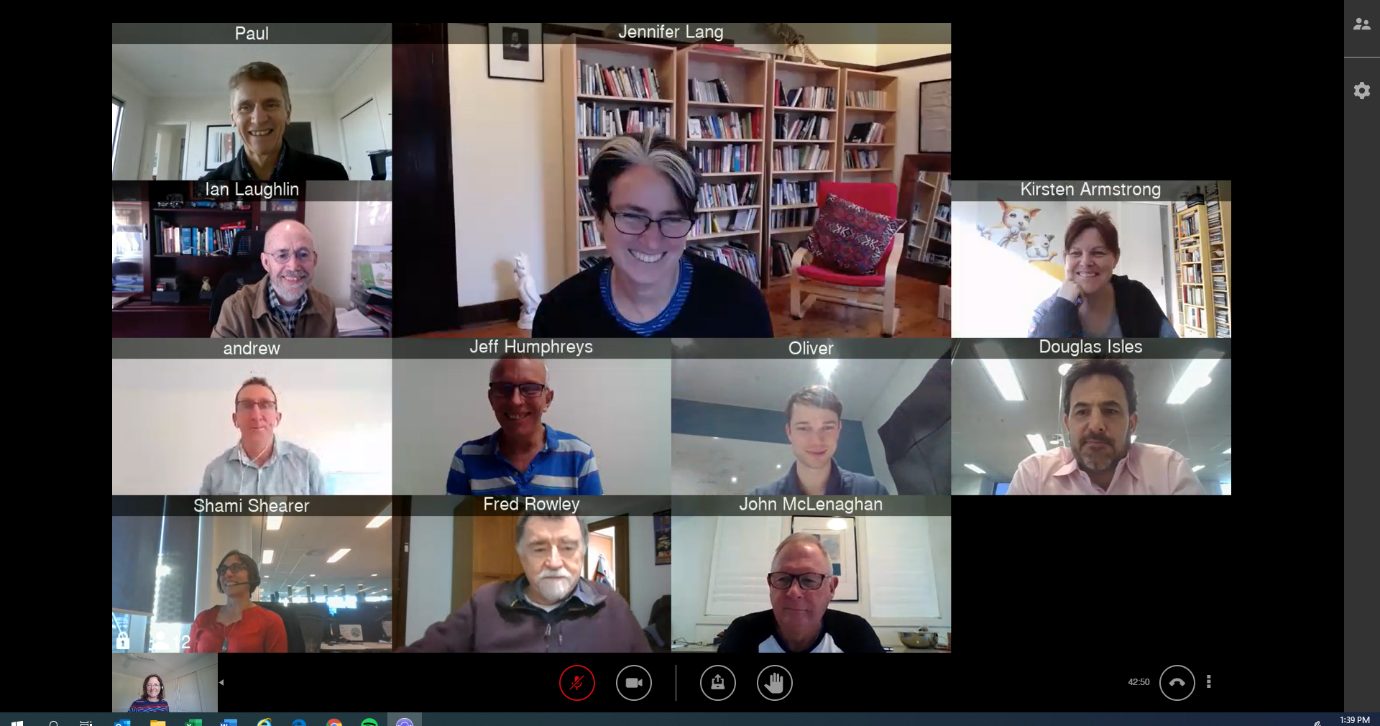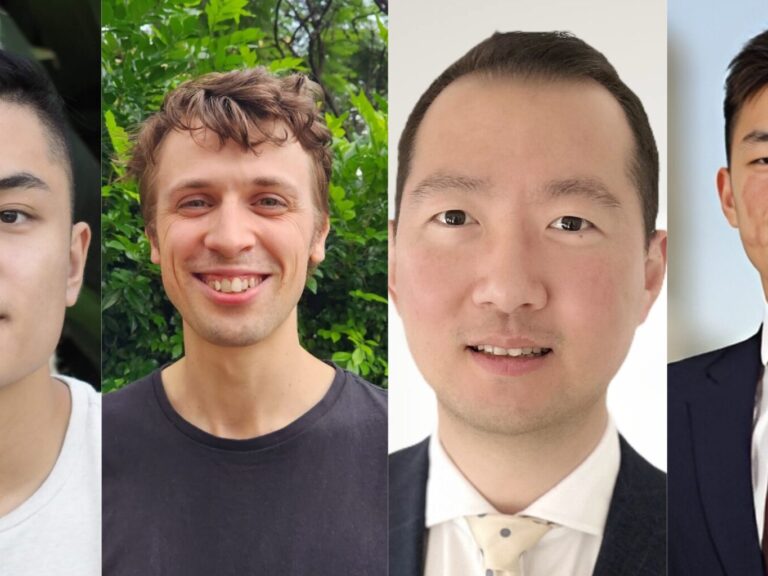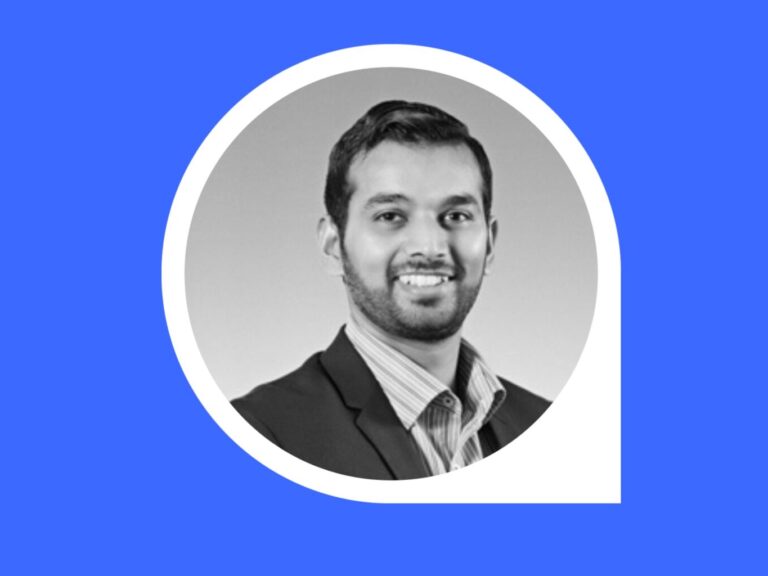
From our Members of the COVID-19 Working Group
This week we will focus on the experience of a sample of our members who volunteered to work in the COVID-19 Working Group (WG). This was a very different type of volunteering opportunity – convened at short notice to respond to the implications of an emerging global health crisis that may affect all of our practice areas.
The insights shared by Jennifer Lang, Andrew Matthews, Ian Laughlin, Douglas Isles, Jennifer Yu and John McLenaghan provide fascinating insights into our profession and the future effects of the pandemic.

Other members of the WG who do not appear in this screenshot are Julia Lessing, Estelle Pearson, Michael Rice, Daniel Longden, Peter Yeates and Vanessa Beenders.
I am very grateful to all contributors to the WG, especially those who were able to share their considered thoughts.
Overall Experience of the Working Group
Not surprisingly, the best aspect of being part of the WG for everyone was related to the people involved. John informs us that “over 80 volunteers responded to HQ’s call to staff” the WG. There were several variations on the theme:
- “Opportunity to work with peers” (Andrew).
- “The chance to work with people from many different parts of the profession” (Jennifer L).
- “The sharing of knowledge and commitment” (Jennifer Y).
- “The energy and passion of the members to tackle pandemic issues” (John).
- “The willingness of everyone to get involved…to chip in, provide moral support etc” (Ian).
- “I liked the SWAT team nature of the WG around a major topic of interest” (Douglas).
There was also high regard for the amount of work undertaken and a specific sense from Jennifer Y of the satisfaction of “being involved in work that affects all people across the globe.”
There was a lot more variety in the aspects that were challenging. As Chair of the WG, Jennifer L “had to learn to chair a meeting remotely with people I didn’t know all that well and software I had never used before! Making sure you hear everyone’s perspective takes longer than a meeting in person would but it is definitely worth being deliberate about trying to hear from everyone.”
Time was a challenge for several people. “Getting timely, meaningful data” (John) or “trying to publish information in a timely manner as data becomes outdated in a matter of days” (Jennifer Y). Douglas quoted a new term, “COVID Brain: That combination of time, motivation, lack of physical interaction, sometimes losing chunks of time somehow”.
Andrew quoted a particular difficulty with a lesson for the future: “Lack of focus on WHO we want to influence. For example, going to media may not be the right step if you want a seat at the policy maker table. Key is more thought on WHO is the audience.”
Working Style of the Group
I was keen to explore the nature and extent of collaboration, especially across practice areas. Jennifer L observed that, “The best collaboration has been in the spaces we have in common e.g. Advising Directors, capital management and risk management”. Jennifer Y said, “It continues to amaze me that our Members are always willing to support each other.”
There were other aspects of collaboration that were identified beyond the WG. John appreciated the “great collaboration between the Working Group and HQ teams to rapidly establish the pandemic website and produce numerous articles, podcasts blogs, information notes and Insights Sessions”. Jennifer L noted, “It’s been great to see how effectively so many senior actuaries have shared experiences to write and present for the benefit of our stakeholders.” Douglas enjoyed “interacting with people in the context of discussing models”, across the WG and across the Institute membership.
At the same time, Ian felt that, “While the group has been very supportive of each other, the work and outputs have tended to be addressed by traditional practice area.” Furthermore, his impression was that “cross practice area perspectives” could improve and Jennifer L echoed this challenge: “It is harder to collaborate in areas where we’ve developed quite different responses (e.g. discount rates).”
I was interested in what traditional actuarial skills had been of most value in the WG. The Actuarial Control Cycle was quoted a couple of times, an especially “good skill in uncertainty”. (Andrew). I also wanted to know what professional values were important. Andrew thought it was a “focus on ethics and doing what is right”. Jennifer L thought it was “a strong emphasis on peer review”. Ian suggested both the “willingness to contribute” and the “quality of work”. Douglas combined the two aspects in his response: “I would tie up perspective and experience – a lot of this has been a non-traditional problem to deal with, lack of clear data, etc”.
On the other hand, I was keen to understand what actuarial practices may have impeded the success of the WG, particularly addressing this “non-traditional problem”. Ian was worried “that individual pieces of work sometimes have a narrow, traditional/numbers perspective”. Douglas believed that “It has moved faster than one can plan, prepare, produce, peer review etc”. Andrew didn’t want the WG “getting hung up about the perfect forecast of the future”.
Personal Reflections
The contributors were generally too modest to point to individual achievements but the following are worth noting:
- The establishment of the valuable resources in the Pandemic Resource Centre.
- The Directors Forum, presented by Ian in co-operation with AICD.
- The media attention Douglas gained through his early paper on community infection.
With the benefit of hindsight, some people may have done things differently:
- “Tap into wisdom and effectively use broader volunteers” (Andrew).
- “More communication (email/phone/vc) between meetings with different parts of the group” (Jennifer L).
- “It may be around prioritising, forming action groups more quickly and more forcefully” (Douglas).
And whether related to the previous points or not the following learnings were expressed:
- “Introduced to some talented people and insights” (Douglas).
- “Problems are OK. It’s what we are here for” (Andrew).
- “I now know how to set up the audio on my computer for at least six different sets of VC software!” (Jennifer L).
Outlook for the Profession
There are some important lessons for actuaries from this experience. Andrew identified “the increased need to look at data AND make decisions. We can be good at this.” Jennifer L hopes that “the experience will make us more likely to collaborate widely – across geographies and across professional boundaries.” Ian had a more provocative view:
“It will test the profession in at least two broad ways:
- How well past work has withstood the COVID stress. This might be in terms of thinking, in actuarial calculations, in risk management, in strategy …
- How quickly and well the profession is able to provide quality, well-recognised advice and work to help businesses to adapt to the new world. This includes the quality of thinking and advice, including our ability to think and work outside conventional bounds.”
In terms of the impact on our reputation, there were different perceptions:
- “I hope it will add to the reputation we already have as a profession that contributes to public policy without worrying about vested interests” (Jennifer L).
- “Good people to involve when there is a crisis” (Andrew).
- Whilst the government is pursuing the plaudits, “we have not done ourselves any damage” (Douglas).
- Ian thinks it is too early to call because, with reference to his challenge above, “the reputation may be enhanced or tarnished by either what has happened or by what will happen.”
Outlook for Australian Society
With the benefit of their experience on the WG, I sought some forecasts…
- “Social distancing and better hygiene seem like they will all become the new norm as well as mobile working conditions” (Jennifer Y).
- “I hope that it will make us more likely to listen to experts, and particularly scientists” (Jennifer L).
- “It will change the way people perceive work/ life, though not as dramatically as people think today, we will revert to type. It will likely make it easier for government to track us – though if we have nothing to hide that may not be a problem. Hopefully we will learn for politics to take a back seat as it did for the first few weeks of lockdown. Many will lose jobs, and our government balance sheet has changed shape” (Douglas).
- “The main point for me is that priorities and behaviours will change – quite a lot in some ways. A question then is how well the profession will cope with that. As a profession we have not done well in some areas when society changes under our feet” (Ian).
- “If you truly believe in a VUCA (volatility, uncertainty, complexity, ambiguity) world then there will be a next crisis. It’s coming…. We talk a good game on agility and adaptiveness but we got caught flat footed. Actually, businesses have done well but it’s been “adaptive by necessity”. The opportunity is to be agile by design not just by necessity.” (Andrew)
Another Matter Arising
There was an intriguing exchange between Andrew and Ian that I hope is relevant to readers. In the course of the webinar conducted jointly with the AICD there was a poll of participants about where the focus of directors and executives was currently in terms of time horizons. Andrew was surprised that only 5% were considering the outlook in three years’ time. Ian shared his insights, explaining that “all the attention has had to be on the short term – survival, adaption etc”. He indicated that in the current crisis the priorities were:
- “Shore the business up so that it gets through the immediate pressures in reasonable condition.
- Then help the business recover (may need a variety of changes to operations).
- In the longer term, perhaps reset strategy and change the business model.”
In that context, Andrew thought that the role of the actuary was to “make a positive contribution to the short term, getting through complexity, so leaders (and us) can spend more time and energy on the long term. Then we get a great reputation for being part of a team and making a positive contribution to ‘complexity busting’”. What do you think?
Many thanks again to the six thoughtful contributors who have provide plenty of points to ponder.
CPD: Actuaries Institute Members can claim two CPD points for every hour of reading articles on Actuaries Digital.






